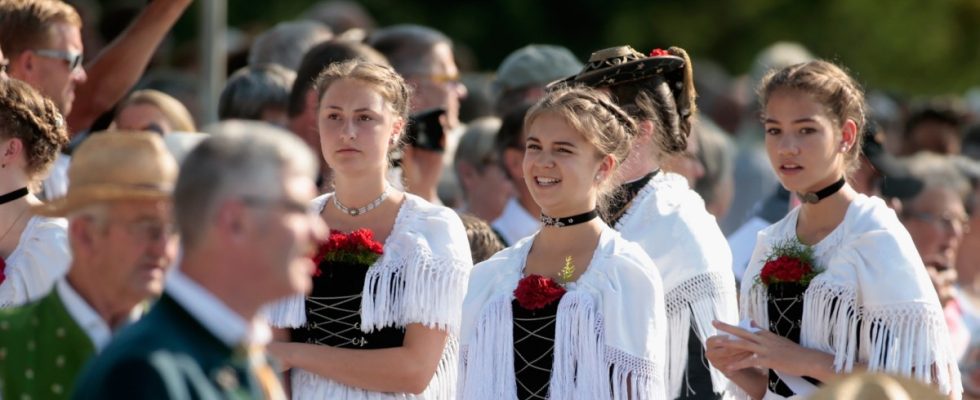For me, Corpus Christi is usually a long weekend when I sometimes have visitors, sometimes go away, often lie around somewhere in the sun and keep asking myself: Why exactly don’t I have to work today? My relationship with Pentecost is similar. Was that the festival with the palm fronds that stuck in my head from religion class in Syria?
In principle, there is nothing wrong with public holidays, quite the opposite. The more the better. Only: it has to be fair. A little anecdote: In 2016 I was living in Bavaria for a short time when I found out that the language school was closed for a holiday. It was obviously the day of the greeting, something with Griass di. Fine, I thought to myself, rang up a fellow escapee who had landed in Hanover and announced my visit. It’s a holiday, I reasoned conclusively from my point of view. The man on the other end of the line was confused. boy what are you talking about
It wasn’t a public holiday in Hanover, despite this business with the Griass di. Well, it turned out that the reason was not Bavarian politeness, but Christianity. Ascension Day was the magic word, but only a day off in Bavaria, not in Hanover. I was happy to have found the right spot in Germany.
Years later, this unequal distribution of public holidays in Germany amazes me more and more. It doesn’t fit this nation at all, where the deep anchoring of equality and democracy can be felt every day. Why does Bavaria have 13 public holidays this year – and Lower Saxony only ten?
In Syria, such arbitrariness would surprise me less. Holidays are decreed there by force if necessary. For example, during the revolution of March 8, 1963, a military coup by the Arab Socialist Baath Party. Or in 2000, I was in ninth grade. Then-President Hafez al-Assad died – and his son, Bashar al-Assad, took power. To begin with, he ordered schools to be closed for 40 days in national mourning. My school exam was postponed by 40 days. It was 40 days full of tension and nervousness. When Assad’s brother died a few years later, there was no work for a week, and all shops and schools were closed. Anyone who listened to music in the car with the window open was arrested.
In Syria, a dictator determines when people work or learn, mourn or celebrate. In Germany, largely the Catholic Church – which is apparently more influential in the south than in the north. This is – of course – the result of the federal state, the 16-part German patchwork rug. It’s certainly not my place to complain as a Bavarian. But if I were a Hanoverian? In Syria one would say: The Bavarians are children of the white duck, the others are the children of the black duck.
In this democratic country one could of course come up with the idea of letting the citizens vote on the occasion and number of their holidays. One of my work colleagues, for example, would like to have a tree holiday when people plant trees to protect the climate. I could do more with that than with Pentecost, which by the way has nothing to do with palm fronds, that was of course Palm Sunday. But as long as it stays with the church holidays, I will celebrate these festivals as they are celebrated by the Christians. Hello, Corpus Christi, hello to the Ascension.

